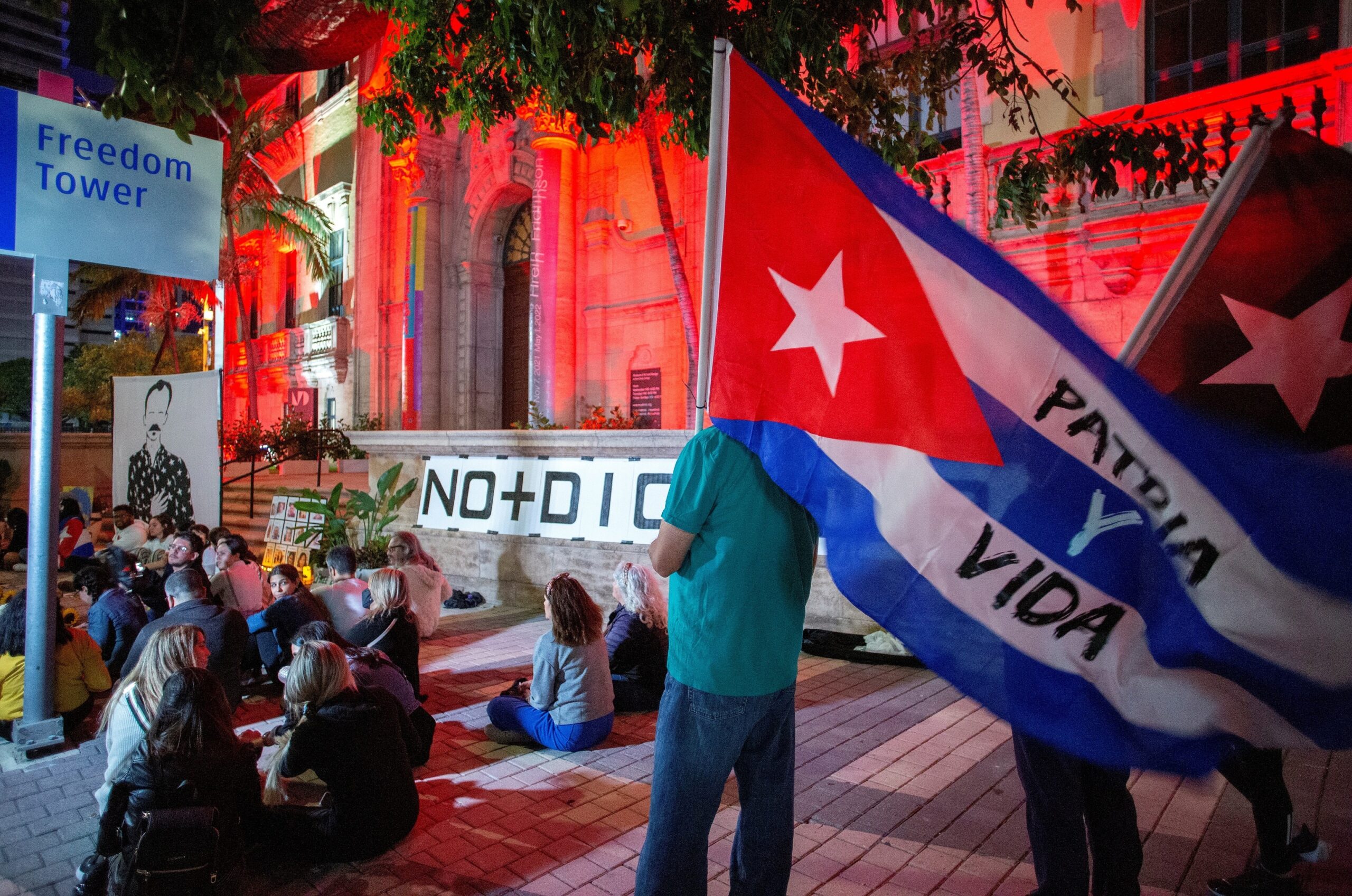“In these months, the regime has given me exile outside of Cuba as the only way out of prison. Otherwise I will spend seven years in prison.” The trial against the artist Luis Manuel Otero Alcántara has not yet begun, which is scheduled to begin today, and it is already known what his sentence will be. Knowing the judicial circus that the Castro regime has already prepared, the leader of the San Isidro Movement (MSI) has managed to transmit an audio from the Guanajay prison, where he has been for ten months, in which he not only describes his condition of health (Amnesty International denounced that he had lost the sight of one eye after one of his hunger strikes).
It is a message full of emotions, a testimony not only against impunity, but also about the future he dreams of for his country. In the middle of the last century, Fidel Castro also raised his voice during the trial that followed the dictatorship of Fulgencio Batista. “History will absolve me” then became one of the engines of what would later become the Cuban revolution.
No one will acquit the artist from Damas 955, the street where the headquarters is located in deteriorated Centro Habana, because his only crime is to peacefully claim freedom for his country.
“I dream that no Cuban will be the enemy of any other Cuban. For these dreams I am willing to sacrifice the flesh of an artist, my flesh as an artist and my freedom-loving spirit. I am sure that freedom will come very, very soon,” he exclaimed. Otero Alcántara, words that are not only addressed to those who fight against the injustice suffered by political prisoners, but also to the Cuban nation inside and outside the island.
The leader of the San Isidro Movement and the rapper Maykel Osorbo, one of the authors of the libertarian anthem Patria y Vida, face revolutionary justice today in the Court of Marianao, in Havana, converted into the symbols of the popular uprising of 11 -J. And they do so feeling the very close support of a large group of friends, relatives, activists, dissidents and organizations such as Amnesty International (AI) and Human Rights Watch (HRW), who did not hesitate to demand the immediate release of the two artists. .
The same request made at the beginning of the year by the United Nations Working Group, which concluded that the rapper had been arbitrarily detained.
The prosecutors of Miguel Díaz-Canel will ask Osorbo for ten years in prison starting today for public disorder, defamation “of institutions and organizations and of heroes and martyrs,” in addition to contempt and attack. The excuse used by the authorities is the events that occurred in April 2021 at the MSI headquarters, when government agents tried to arrest the rapper and the neighbors prevented it.
The reality is that the memes published by Osorbo on Facebook against Raúl Castro’s successor and, above all, his participation in Patria y Vida, placed him in the eye of the hurricane. Always considered an “uncomfortable” enemy for Castroism, due to his popularity in the neighborhoods of Havana and among Afro-Cubans, the rapper represents those who are not afraid to raise their voices against the dictatorship.
“State Security and the Cuban regime prefer as a rule to act in the shadows and we urgently need to remove that veil of impunity,” stressed activist Anamely Ramos, a sentimental partner from Osorbo and to whom the government denies her right to return to the island. . The rapper, confined in the sinister Villa Marista prison, will not even be able to count on his lawyer Ginnet del Solar, punished with a suspicious restriction to practice until August.
The accusation against Otero Alcántara includes an alleged outrage against national symbols, for using a Cuban flag in a work of art that he called Drapeau. “Soon it will be a year since the last peaceful and unprecedented mobilization of the Cuban people in search of their freedom. This year I had not said how proud I am to be Cuban and of this people inside and outside the island,” highlighted the artist in his audio.
Of course, behind the persecution against Otero is his pacifist leadership, without fanfare and always linked to his artistic manifestations. As soon as he verified through the networks that the Cuban people took to the streets on July 11 of last year, the artist summoned his friends to the Malecón. The police didn’t even let him get there.
Cuban activists have asked the European embassies and the governments of the continent to make an appearance at the trial against the two artists to be notaries of the judicial fraud. “And this is just the tip of the iceberg,” Ramos said. Today, 1,015 political prisoners remain in the dungeons of Castroism, after a chain of releases of minors and adolescents, who hope to fulfill their “correctional work with internment, a euphemism for forced labor,” criticized activist Salomé García Ballacao, co-founder of Justicia11J.
Conforms to The Trust Project criteria
















